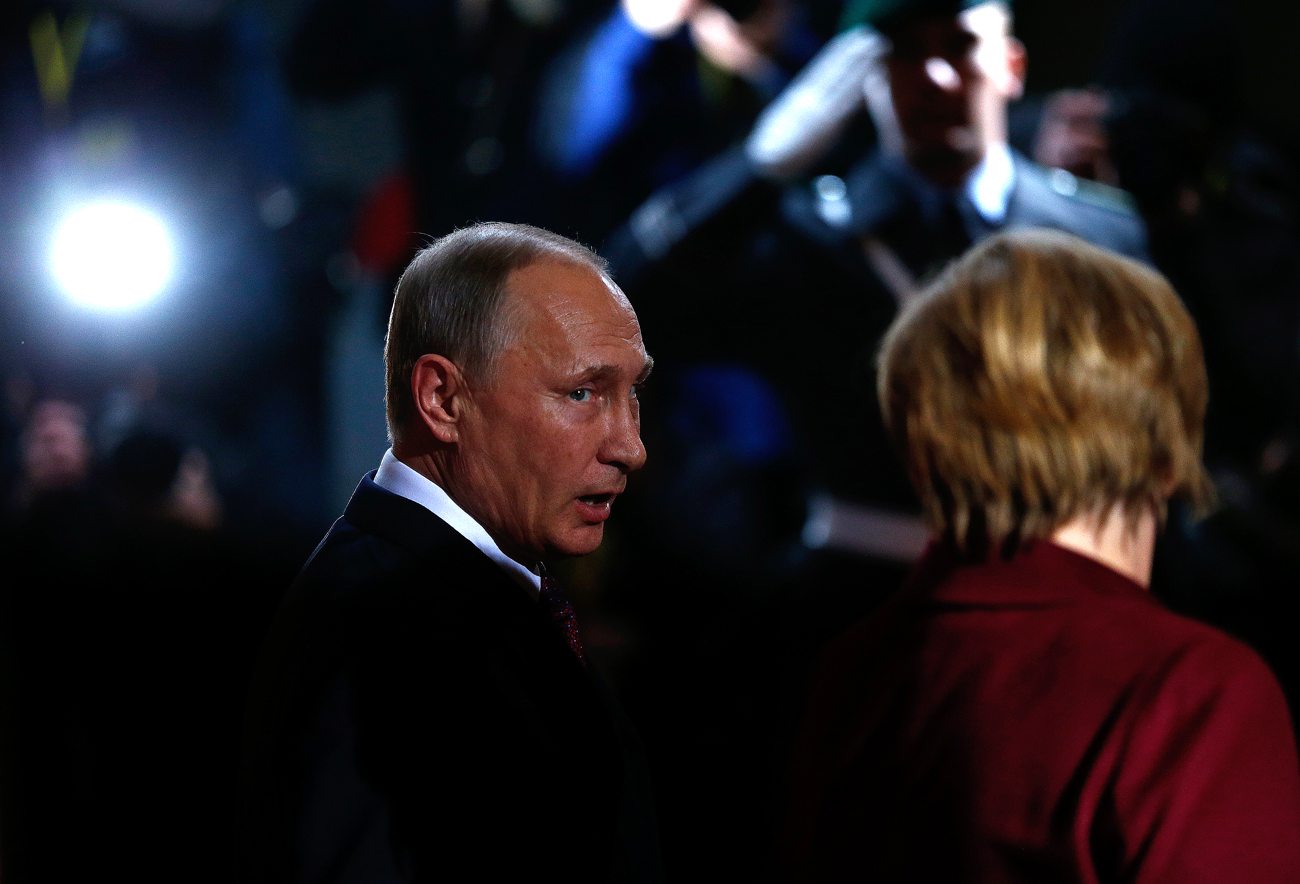
Russian President Vladimir Putin talks to German Chancellor Angela Merkel as he arrives for talks on a stalled peace plan for eastern Ukraine at the chancellery in Berlin, Germany.
ReutersThe model of an open and comprehensive world order, with the United States and its allies at the helm, is becoming a thing of the past. The leading countries' ruling classes are being forced by their own citizens to shift their attention to domestic affairs, while their plans for outward expansion, be it political, economic, or ideological, are being put on the back burner. This expansion is unlikely to come to a complete halt, but the post-Cold-War thrust towards global dominance was so violent, and so rapid by historical standards, that it has now resulted in the current recoil.
For Russia, too, this means the beginning of a new phase. Ever since the disintegration of the Soviet Union, Russia has viewed the West as its point of reference, feeling the need to formulate, in one way or another, its attitude towards the Western model of the world order. Irrespective of the geopolitical situation, Europe was seen as an essential element of Russia's internal development, a point of either attraction or repulsion.
Immediately after the Cold War, there were even suggestions that Russia might join Western political institutions, the same institutions which came to determine the entire world order for the following 20-odd years. This was the main strategic decision taken in the early 1990s.
Since the second half of the 2000s Moscow has been increasingly focused on repelling the Western desire to keep propagating the model it considered correct and necessary.
By the mid-2010s the situation began more and more to resemble a full-fledged “Cold War,” and by the fall of 2016 worrying indications emerged of a possible direct confrontation. But then the aforementioned about-turn took place in the West.
Washington now appears to be reanimating the tried and tested logic of deterrence. There is a widespread theory that when Trump mentions his goal of “making America great again” he is actually thinking back to the 1950s, the period marked by an economic upturn, by a rush of national self-confidence following the victorious war, and by the sheer absence of political correctness. One should not forget that it was also the period when nuclear deterrence, and the principles of strategic stability (the rules of nuclear confrontation), were nervously being put in place.
Europe is deep in thought, deciding what attitude to choose toward Russia. This question may become a serious factor in the Old World's internal evolution in the coming months.
The keynote idea of the 1990s and 2000s that Russia should somehow integrate into Greater Europe seems to have been taken off the agenda. In the past several years it continued to be voiced mostly by inertia.
There have been two factors attaching logic to Moscow's actions and helping it achieve victories. First, the fear of many non-Western countries of getting caught in the crosshairs of U.S. policy has been prompting anti-Western consolidation processes. Second, both the U.S. and Europe have made too many foolish steps and mistakes, primarily for ideological reasons, and Russia has skilfully availed of these.
The decrease in U.S. activity and the crisis within Europe are finally giving Russia a chance to take independent steps that would not come as reactions to Western stimulae.
The much-coveted multipolar world is finally arriving; now the question is what it will look like. Russia could choose to continue challenging U.S. hegemony and Western influence, but neither of these factors is going to go away completely.
New social, technological and geopolitical ideas will be increasingly in demand everywhere. Moscow has mostly overlooked this opportunity since the last years of the USSR: There were always other things to worry about; also, there seemed to be no external demand for such things.
Now is the time to start offering the world something of our own devising; something that, rather than being aimed at fending off external pressure or at sticking up for our interests, would incorporate the notion of “the common good.”
Caught in the frenzy of realpolitik, we have long ago forgotten that at the end of the day, history is made by those who rely on such notions. By the way, doing so normally makes one better at protecting one's own interests too.
First published in Russian by Gazeta.ru.
Fyodor Lukyanov is editor-in-chief of Russia in Global Affairs magazine and chairman of the Presidium of the Council on Foreign and Defense Policy, an independent Moscow-based think tank.
The opinion of the writer may not necessarily reflect the position of RBTH or its staff.
All rights reserved by Rossiyskaya Gazeta.
Subscribe
to our newsletter!
Get the week's best stories straight to your inbox